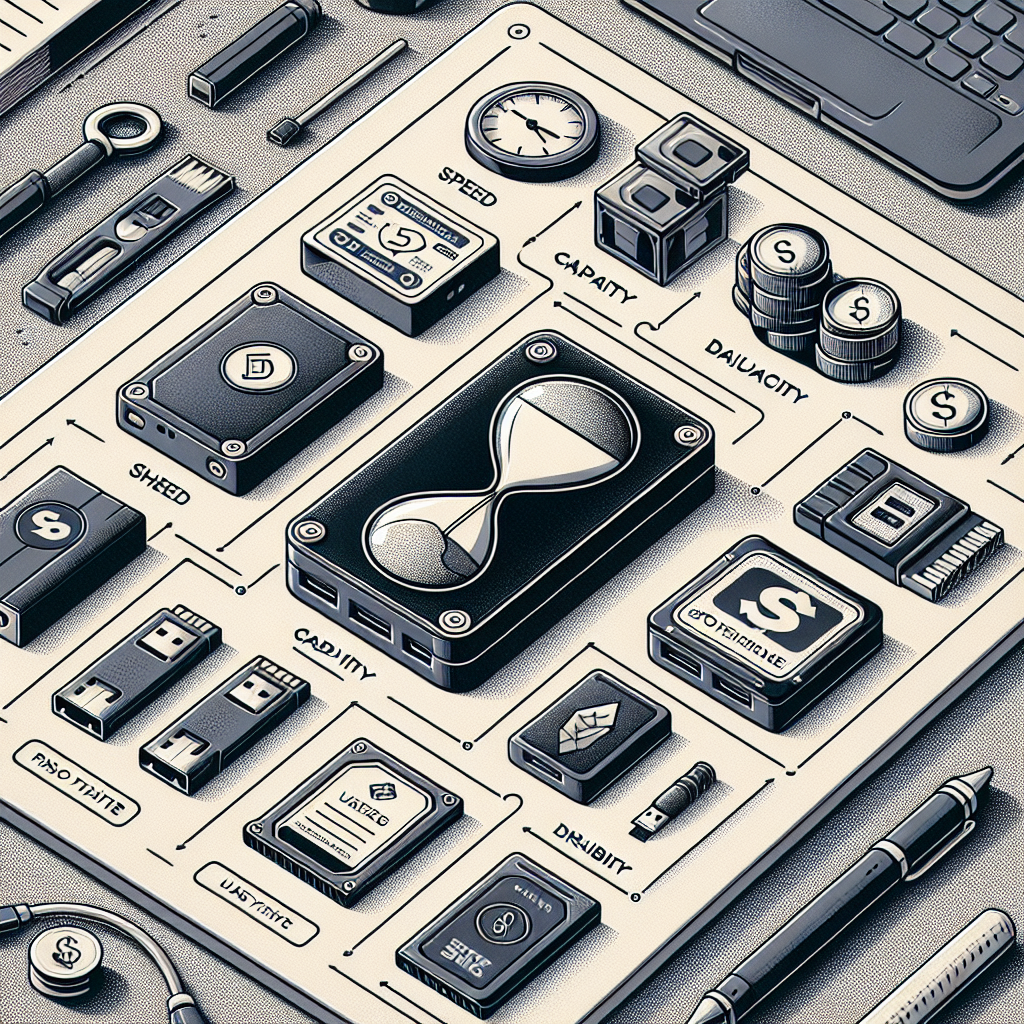External storage devices are essential for anyone who needs to expand their storage capacity or back up their important files. With so many options available on the market, it can be overwhelming to choose the right one for your needs. In this article, we will discuss some key factors to consider when selecting an external storage device.
1. Storage Capacity: The first thing to consider when choosing an external storage device is the amount of storage space you need. If you only need to store a few documents or photos, a small capacity device such as a USB flash drive may be sufficient. However, if you need to store large files such as videos or games, you will need a higher capacity device such as an external hard drive or solid-state drive (SSD).
2. Speed: The speed of the external storage device is also an important factor to consider, especially if you will be transferring large files frequently. SSDs are generally faster than traditional hard drives, so they are a good option if speed is a priority for you.
3. Portability: If you need to take your external storage device with you on the go, portability is key. USB flash drives and portable hard drives are small and lightweight, making them easy to carry around in a pocket or bag. On the other hand, desktop external hard drives are larger and less portable but offer higher storage capacities.
4. Connectivity: External storage devices come with different connectivity options, such as USB, Thunderbolt, and eSATA. Make sure to choose a device that is compatible with your computer or other devices. USB is the most common connectivity option and is supported by almost all computers.
5. Durability: If you will be using your external storage device in rough conditions or on the go, durability is an important factor to consider. Look for devices that are shock-resistant, water-resistant, and have a sturdy casing to protect your data from damage.
6. Price: Finally, consider your budget when choosing an external storage device. USB flash drives are generally the most affordable option, while SSDs tend to be more expensive but offer better performance. Compare prices and features to find the best option that fits your needs and budget.
In conclusion, choosing the right external storage device for your needs involves considering factors such as storage capacity, speed, portability, connectivity, durability, and price. By taking these factors into account, you can ensure that you select a device that meets your storage requirements and provides reliable performance for years to come.


Leave a Reply